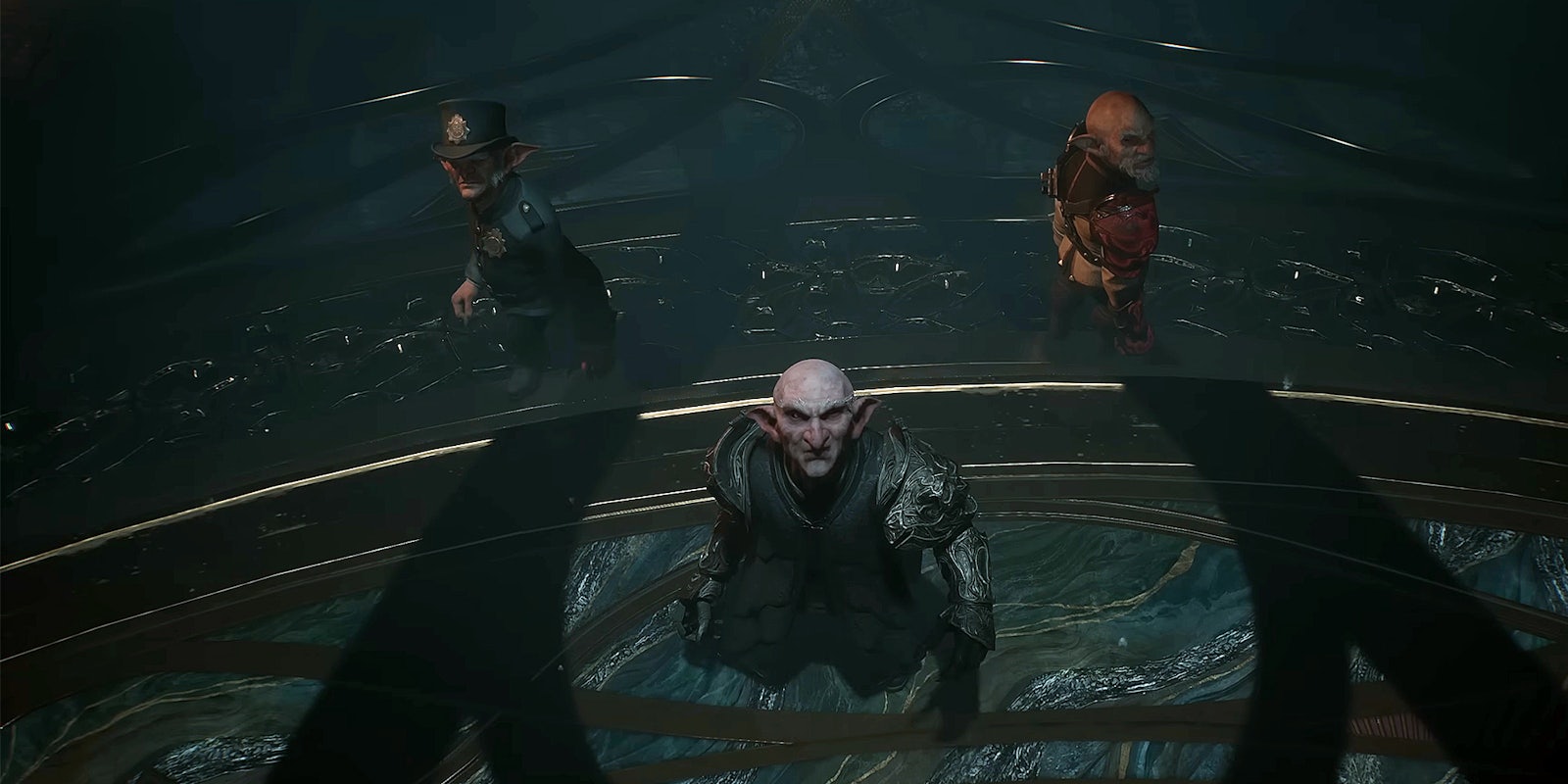With the release of Hogwarts Legacy, the upcoming Harry Potter video game set during the 19th-century, later this week, many conversations around the game and calls for a boycott have reemerged, even in the face of efforts to diversify characters within the Wizarding World. But, as players begin going through the game and streaming gameplay online, another criticism of Hogwarts Legacy’s plot returned after details about the goblin-centric aspect of its plot emerged.
The depiction of goblins in Harry Potter by J.K. Rowling has a complicated history. Apart from a couple of named characters, they’re mostly background fodder with large, hooked noses and are shown as the characters who run the Wizarding bank Gringotts in London. Between the visuals and the job, the series has long faced accusations of leaning into antisemitic tropes.
It’s a criticism—one steeped more directly within the context of the game versus calls to boycott the game because of Rowling’s ability to make money from game sales—that has followed Hogwarts Legacy since the unveiling of its main plot last year: Players have to stop a goblin uprising (and a wish for cultural artifacts to be returned) that is aided by a Dark wizard.
Now that gameplay of Hogwarts Legacy is streaming on platforms like Twitch—where, according to the game’s Twitter account, it says it’s now the “#1 Single Player game ever on @Twitch with 1.28M peak concurrent viewers at launch”—people are getting a better look at the game. And what they’re seeing of the game from gameplay and screenshots circulating social media, is doing little to quell concerns about antisemitism.
One of the goblin artifacts in the game is a horn, but the design is similar to the shofar, a horn used during Rosh Hashanah and Yom Kippur.
But the 1612 Goblin Rebellion casually referenced in the same screenshot also has a real-world correlation that some have drawn a connection to a Jewish pogrom in Germany around the same time. (The Fettmilch Uprising started in 1612, while the pogrom took place in 1614.)
But the central plot of the game, which includes plans to kidnap a child, has troubled people as well because of the allusions it has to blood libel, a longstanding and false conspiracy theory that Jewish people kidnap non-Jewish Christians so they can use their blood for ritualistic purposes. Present throughout hundreds of years of European history, it was used to attack Jewish people in more recent years as the Nazis weaponized it to fuel antisemitic propaganda.
WB Games has long maintained that Rowling didn’t have creative input for Hogwarts Legacy, and in the wake of her comments against the trans community, developers tried to make the game more inclusive, including the introduction of a trans woman character. According to a report from Bloomberg, Rowling will profit from game sales. However, the Blair Partnership, her creative agency, did have some level of involvement with developers, although the report doesn’t elaborate on what that means.
Calls to boycott Hogwarts Legacy have persisted for years, with many sighting Rowling’s comments about trans women as a reason why, but it’s gotten resistance from some players and Harry Potter fans who wish to separate the art from the artist. Others argued they’ll only play the game when they can get it second-hand so they can experience it without financially supporting Harry Potter. But for those who are upset about the antisemitism in the game, it offers another argument to not buy or play the game at all: Even if you’re purchasing it second-hand, playing means experiencing a game with several antisemitic tropes.
We reached out to Warner Bros. Games for comment.



